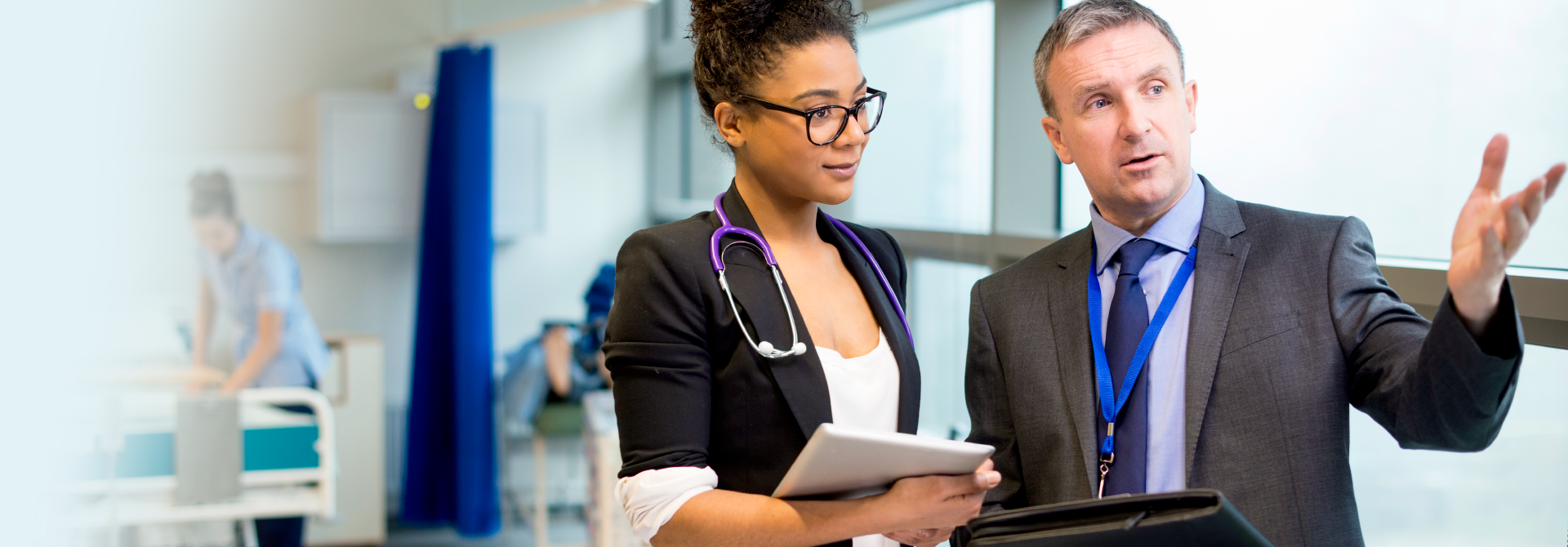

No one understands the challenges of individual patient care more directly than the nurses who have provided that care day in and day out. What if that expertise was integrated within the ranks of your suppliers?
Leading suppliers recognize that placing nurses in key roles within product development and customer support can help elevate dialogue and understanding, both among and between provider and supplier stakeholders.
To illustrate the model — and its benefits — we talked with several nurses at Spacelabs Healthcare, an early entrant in the race to integrate real-world needs into the nimble development of innovative healthcare products and services.
Lindsey Kuykendall, Sarah Lyle, Alisa Heyman and Tony DelVillano are just a few of the Spacelabs professionals with nursing backgrounds. Each brings a unique set of first-hand clinical experiences to bear on issues around improving care team performance. Together, they provide a perspective and expertise that is critically important to advancing the utility of innovations that can help providers deliver better care.
Questions and answers:
Why integrate nursing expertise at suppliers?
“Nurses who work for suppliers are uniquely positioned to be invaluable resources externally and internally,” offers Kuykendall. “Suppliers who integrate nurses in their organization are better positioned to develop technology that truly meets the needs of the care team as well as the patient.”

What roles do nurses play at suppliers?
“Understanding what really happens at the bedside is crucial for identifying opportunities for improvement,” says Lyle. “Because we understand clinical practices, we have a more complete understanding of the informatics and patient measurement needs of providers — and can help guide our colleagues in R&D and product development in ensuring new offerings meet those needs.”
What are the benefits for patients?
“The benefits to patients are clear,” Lyle adds. “Patients benefit most from systems that make it easy for care teams to access actionable information to make quick, fully-informed decisions. Suppliers that leverage real life nursing experience are best-equipped to make sure that these systems are optimized to be as helpful as possible.”

How does nursing expertise translate into value for providers?
“The most effective applications of technology can only be accomplished with solid planning, education, implementation and ongoing support,” according to DelVillano. “Our nursing knowledge can help ensure that all elements of clinical workflows are considered along the way. We usually have a good rapport with healthcare teams because of our boots-on-the-ground experience.”
What are the benefits in terms of care team performance?
Tailoring technology is critical to care team performance, according to Heyman: “As nurses, we not only understand the unique needs of individual hospitals, but also the unique needs of various units within the hospital. We understand what may be needed for each unit based on our clinical experiences and knowing which questions to ask. We’re typically involved at every stage of the project to consult, support and deliver on the mission to improve care team performance.”

Can you provide any specific examples?
DelVillano shares how Spacelabs nursing expertise helped a provider interpret arrhythmias more effectively: “Our past experiences with ECG interpretation helped us understand that putting arrhythmias in perspective is more important than a single, possibly benign, alarm. Showing care team members how to set up a graph of trends data enabled them to see how vital signs over time show the complete story, rather than a possible one-time aberration. We also were able to demonstrate how various vital signs, such as heart rate and oxygen saturation in babies, correlate.”
How are nurses currently deployed at Spacelabs?
Spacelabs integrates nursing expertise throughout the organization, from needs assessment; to product development, including user-interface
design; through implementation; clinical education; and ongoing support/troubleshooting. “Communication needs to be continuous,” according to Kuykendall. “Our clinical education team, for example, talks frequently with product development to make sure our latest observations are integrated into new offerings.”
What are your backgrounds?
“We have a wide variety of clinical backgrounds. Our specialties include telemetry; the NICU; PICU; ED, CVICU, MICU, nursing administration, pediatrics and more,” says Kuykendall. “Having this range of experiences helps us to understand the various needs of different areas in a hospital. We also work very closely with each other, so if one of us doesn’t know something, chances are someone else on our team will. And we often leverage that.”

What is your role relative to sales?
“We don’t typically get involved in actual sales other than to help uncover a customer’s real needs and to help ensure that the order placed includes all the equipment required for the staff to do their best work,” according to DelVillano. “Our main role is to help assess needs, identify the right solutions and train people to use them most effectively.”
Where do you see things going in the future?
Kuykendall paints a bright picture: “Nurses become nurses ultimately to help people, and this goal can be achieved both inside and outside the walls of a hospital. It’s very rewarding to make sure whatever we do is focused on the patient and care team performance. Integrating nursing knowledge and expertise at suppliers creates more opportunities for innovation and improvement for everyone.”